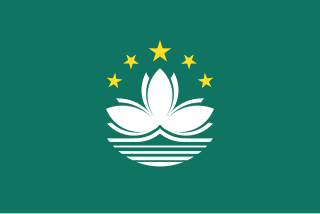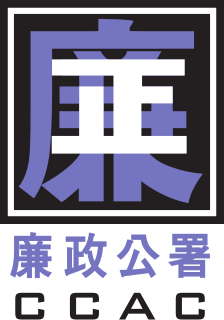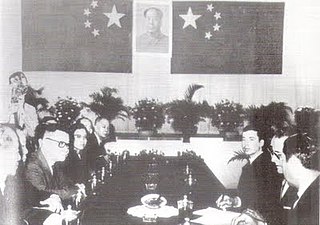Portugal
- Angola – Military junta (1782-84)
- Macau –
- D. Francisco de Castro, Governor of Macau (1781–83)
- Bernardo Aleixo de Lemos e Faria, Governor of Macau (1783–88)
| See also |
|---|
This is a list of the governors of colonies, protectorates, or other dependencies in 1783. Where applicable, native rulers are also listed.

Macau or Macao, officially the Macao Special Administrative Region of the People's Republic of China (MSAR), is a city and special administrative region of the People's Republic of China in the western Pearl River Delta by the South China Sea. With a population of about 680,000 and an area of 32.9 km2 (12.7 sq mi), it is the most densely populated region in the world.

The Macau Peninsula is the most populous and historic part of Macau. It has an area of 8.5 square kilometers (3.3 sq mi) and is geographically connected to Guangdong province at the northeast through an isthmus 200 meters (660 ft) wide. The peninsula, together with downtown Zhuhai, sits on an island separated from the continent by distributaries of the Pearl River. The Border Gate was built on the northern isthmus. At the south, the peninsula is connected to Taipa Island by three bridges, the Friendship Bridge ; the Macau-Taipa Bridge ; and the Sai Van Bridge . The longest axis extends 4 kilometers (2.5 mi) from the Border Gate to the southwestern edge, Barra (媽閣嘴). There is a western "Inner Harbor" (內港) paralleled by an "Outer Harbor" (外港) to the east. The 93 meters (305 ft) Guia Hill (松山) is the highest point on the peninsula, which has an average elevation of 50 to 75 meters. Many coastal places are reclaimed from the sea. The Historic Center of Macau, which is entirely on the Macau Peninsula, became a World Heritage Site in 2005.

The flag of Macau, officially the regional flag of the Macau Special Administrative Region of the People's Republic of China is light green with a lotus flower above the stylised Governador Nobre de Carvalho Bridge and water in white, beneath a circular arc of five golden five-pointed stars: one large star in the center of the arc with two smaller stars on each side of the large star, each with a point angled directly outward from the center of the common circle on which they lie.

The governor of Macau was a Portuguese colonial official who headed the colony of Macau, before 1623 called captain-major. The post was replaced on 20 December 1999 upon the transfer of sovereignty over Macau to China by the office of the chief executive of Macau.

The Chief Executive of the Macau Special Administrative Region of the People's Republic of China is the head of government of Macau, a special administrative region of China. The position replaced the office of Governor of Macau, the former head of Macau as an overseas province of Portugal. Under the Basic Law of Macau, the chief executive's role is to:
...be the head of the Macau Special Administrative Region and shall represent the Region. The Chief Executive of the Macau Special Administrative Region shall be accountable to the Central People's Government and the Macau Special Administrative Region in accordance with the provisions of this Law.

Vasco Joaquim Rocha Vieira, GCTE GCC GCIH ComA, is a retired Portuguese Army officer who was last Governor of Macau.

The Commission Against Corruption is an official body of Macau responsible for the prevention, investigation and (probably) prosecution of corrupt activities.

Fortaleza do Monte is a fort in Santo António in Macau. It is the historical military centre of Macau. The fort forms part of the "Historic Centre of Macau" and is a UNESCO World Heritage Site.
The Government of the Macau Special Administrative Region of the People's Republic of China, are headed by secretariats or commissioners and report directly to the chief executive. The affairs of the government are decided by secretaries, who are appointed by the chief executive and endorsed by the State Council of the Central People's Government in Beijing. As a special administrative region of China, Macau has a high degree of autonomy, in light of the "One Country, Two Systems" policy. The Macau Government, financially independent from the Central People's Government, oversees the affairs of Macau.
Articles related to Macau include:

The 12-3 incident refers to political demonstrations and rioting against Portuguese rule in Macau that occurred on 3 December 1966. The incident, inspired by the Cultural Revolution in the People's Republic of China, occurred in direct response to a violent police crackdown by the Portuguese colonial authorities against local Chinese protestors demonstrating against corruption and colonialism in Macau. The incident is known as "12-3", in reference to the date of the riots.

Portuguese Macau was a Portuguese colony that existed from the first Portuguese settlement in 1557 to the end of colonial rule and the transfer of sovereignty over Macau to the People's Republic of China in 1999. Macau was both the first and last European holding in China.

Januário Correia de Almeida was a Portuguese colonial administrator, military engineer and a diplomat. He was created Baron of São Januário by King Luís I in 1866, Viscount of São Januário in 1867 and Count of São Januário in 1889. He was born in Paço de Arcos on 31 March 1829 as son of Januário Correia de Almeida and Bárbara Luísa dos Santos Pinto.
Arnaldo Nogueira de Novais Guedes Rebelo. was a Portuguese colonial administrator and military officer. He was born on 11 June 1847 in Vitória, a parish of Porto.